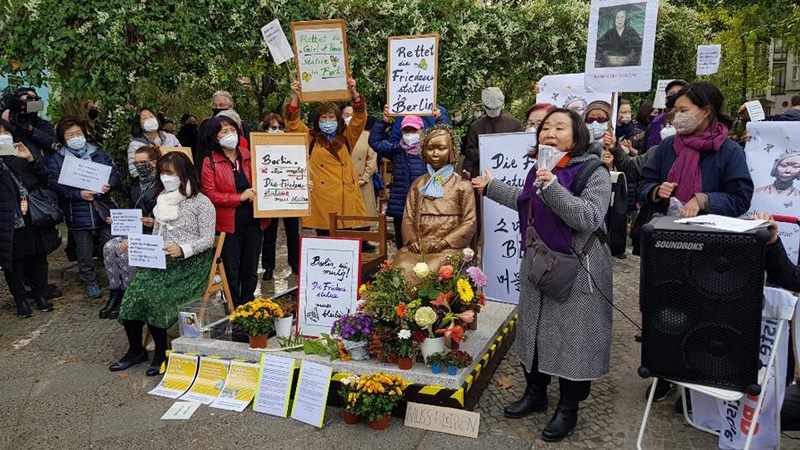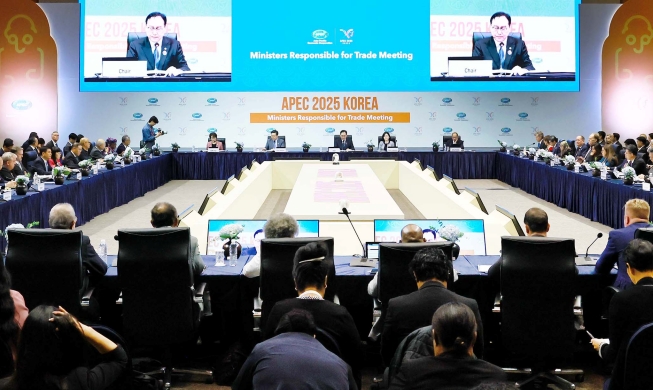
An order to remove "Statue of Peace," which was installed last month in Berlin's Mitte district, has been suspended. The photo shows both German and ethnic Korean residents of the German capital on Oct. 13 protesting the removal of the statue. (Yonhap News)
By Kim Minji
"Statue of Peace," which shows a girl symbolizing women forced into sexual slavery by Japan before and during World War II, can remain in place in the Mitte district of Berlin.
The district office on Oct. 13 said the civic group Korea Verband filed an injection that suspended the order to remove the statue on the next day.
The statue was unveiled last month but the district ordered its removal due to opposition from Japan.
The district said it will wait until a court rules on the injunction.
On the same day, about 300 German and ethnic Korean residents of Berlin gathered near the statue and marched 30 minutes to the district office demanding that it retract its decision to remove the statue.
German media also covered the protest and the suspension of the removal order.
The daily Berliner Zeitung said, "(The conflict is) an issue of remembering the victims of Japan's wartime sexual slavery, not those of war crimes," in the article "District chief to decide on statue's removal."
"Many Japanese who survived World War II think they were victims, not criminals," it added, saying Japan's attitude is an insufficient reason to remove the statue.
Zeitung also noted how unusual it was for the foreign ministry of a country with a population of 126 million to ask a municipality 9,000 km away to remove a monument, as well as the district's surprising acceptance of the request.
Another German newspaper, Die Welt, covered on the same day another rally in Moabit, an inner city locality within Mitte, saying most of the protesters were women.
The daily Tageszeitung (TAZ) said the co-head of the Mitte branch of Germany's Social Democratic Party said the statue has greatly contributed to raising awareness of sexual slavery during wartime, adding that to resolve historical issues, a wide range of civil society should be able to participate.
The district office agreed that the statue highlights the global issue of sexual slavery during wartime and permitted its installation in July.
After Japan expressed its opposition to it, however, the office on Oct. 7 ordered Korea Verband, who set up the statue, to remove it by Oct. 14.
kimmj7725@korea.kr
